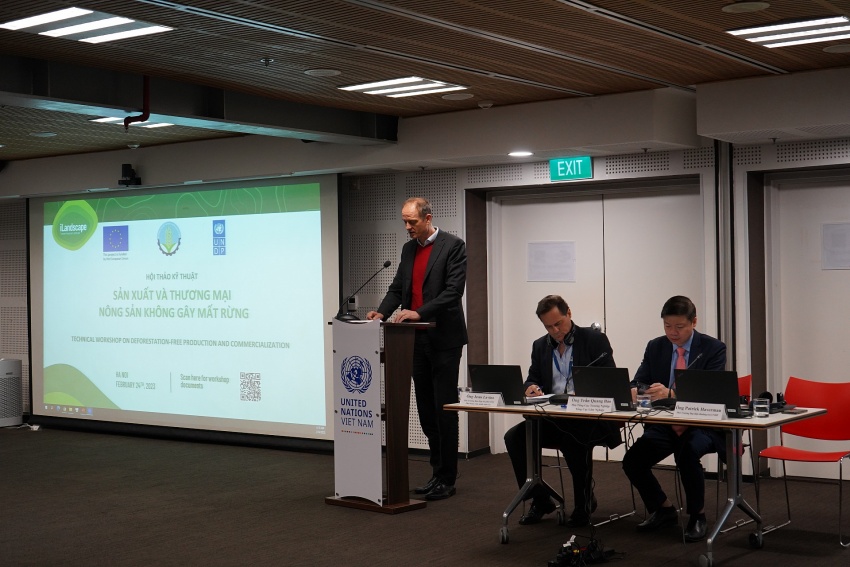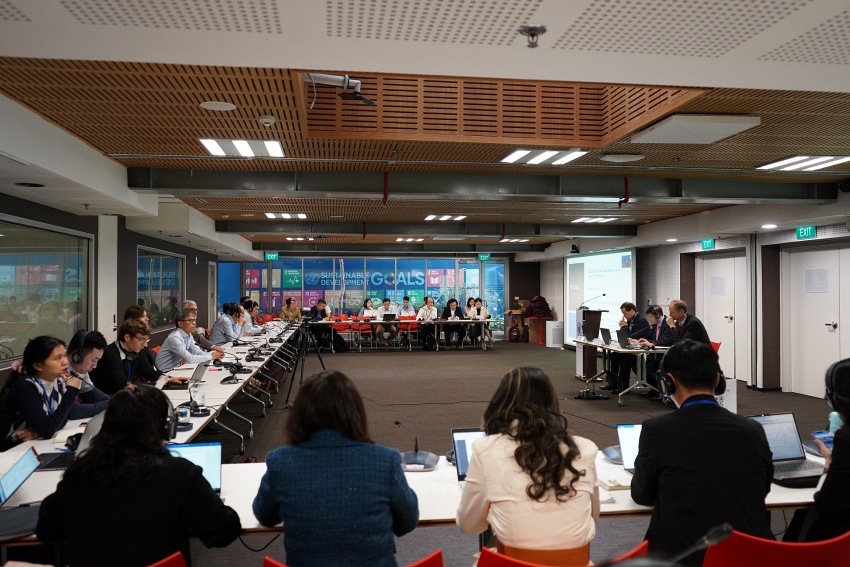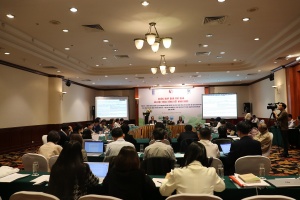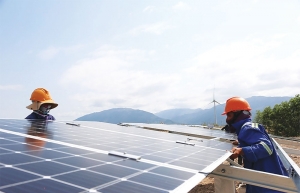Vietnam moving towards deforestation-free coffee production
 |
As deforestation and forest degradation continue to be important drivers of climate change and global biodiversity loss, the EU has recently agreed on a regulation to only purchase from deforestation-free supply chains.
At the workshop, held on February 24, Tran Quang Bao, deputy director general of the Vietnam Administration of Forestry stated, "Vietnam's agricultural exports in the near future will be impacted by this law, particularly coffee, which is the largest export commodity of Vietnam's agricultural sector to the European market".
The Central Highlands, which is known as the coffee-producing capital of Vietnam, has also been developing other agricultural products such as rubber, black pepper, and fruit trees recently, and is an important area for agricultural production and a key part of Vietnam's development strategy.
"At this workshop, through discussing EU regulations and the experiences of businesses and international friends in developing forest-friendly industries, we expect to exchange ideas and learn from our international partners and build a roadmap for development that complies with EU regulations," said Bao.
Jesus Lavina, deputy head of cooperation of the EU Delegation in Vietnam, provided an overview of the EU's recent regulation on deforestation-free products. No commodities or products within the scope of the regulation will be allowed into the EU market if they were produced on land subject to de-forestation or forest degradation after December 31, 2020.
"Deforestation and forest degradation are among the main drivers of climate change and biodiversity loss. The EU, among others big consumer markets, contributes to it by consuming a significant share of products associated with deforestation and forest degradation," said Lavina. "The EU, therefore, has the responsibility to contribute to ending it".
The Sustainable Development Goals committed countries around the world to halt deforestation by 2020. Despite joint efforts, deforestation has continued at an alarming rate. "At COP26 in Glasgow, 143 producer and consumer countries, including Vietnam and the EU, pledged to halt and reverse deforestation by 2030. This timeline must not be missed," emphasised Lavina.
The regulation sets mandatory due diligence rules for companies that want to bring such products or commodities to the EU market, with the aim of ensuring that only deforestation-free and legal products are permitted. The commission will use a benchmarking system to assess countries and their level of risk of deforestation and forest degradation.
This regulation comes in addition to other international cooperation instruments that Vietnam is continuing to pursue, in line with the 2019 EU Communication on Stepping up Action to Restore and Protect the World’s Forests, in the hope that this will raise the level of ambition in halting deforestation globally.
 |
Patrick Haverman, deputy resident representative of the UNDP said that the programme is working with the Ministry of Agriculture and Rural Development in implementing integrated sustainable landscape management through a deforestation-free jurisdiction project in Lam Dong and Dak Nong.
The iLandscape project aims to improve environmental sustainability and food production along with supply chain resilience in the Central Highlands of Vietnam.
The scheme's objectives are to enhance the active participation of different stakeholders in land use planning and monitoring; identify and further develop ecologically sound agricultural practices; provide technical support and promote the multi-stakeholder partnership between governments, farmers, and international companies; and support sustainability and deforestation-free sustainable production models. All of which are deemed crucial to meeting the new global regulations.
The workshop featured speakers from a range of organisations and companies, including Lavazza, the Italian coffee producer, and Silva Cacao, a Belgian importer of cacao. Mario Cerutti, chief institutional relations and sustainability officer of Lavazza discussed the role of private sector companies in collaborating with government and local producers to mitigate climate change and eliminate deforestation, while Katrien Delaet, co-owner of Silva Cacao explored the challenges and opportunities of defining the road towards sustainable deforestation-free production.
The workshop also provided insights from Karina Barrera, the undersecretary of climate change for the Ecuadorian Ministry of Environment, Water, and Ecological Transition. Ecuador is a pioneering country working towards a more sustainable economy. Undersecretary Barrera shared her country's policies and partnerships that have turned the coffee trade into an ally of forests and the climate, promoting direct changes that can lead to innovative transformations to tackle climate change and deforestation.
 | Finding sustainable solutions to live with nature The Biosphere Reserves Project was reviewed by the Ministry of Natural Resources and Environment (MoNRE) and the United Nations Development Programme (UNDP) on December 26 to look for sustainable solutions. |
 | Resource mobilisation at top of agenda for net-zero dream With its huge need for funding to fulfil its international commitment to achieve net-zero emissions by 2050, which has been backed by an international initiative, Vietnam is set to formulate new policies this year to mobilise more resources. |
What the stars mean:
★ Poor ★ ★ Promising ★★★ Good ★★★★ Very good ★★★★★ Exceptional
Related Contents
Latest News
More News
- Vietnam sets ambitious dairy growth targets (February 24, 2026 | 18:00)
- Masan Consumer names new deputy CEO to drive foods and beverages growth (February 23, 2026 | 20:52)
- Myriad risks ahead, but ones Vietnam can confront (February 20, 2026 | 15:02)
- Vietnam making the leap into AI and semiconductors (February 20, 2026 | 09:37)
- Funding must be activated for semiconductor success (February 20, 2026 | 09:20)
- Resilience as new benchmark for smarter infrastructure (February 19, 2026 | 20:35)
- A golden time to shine within ASEAN (February 19, 2026 | 20:22)
- Vietnam’s pivotal year for advancing sustainability (February 19, 2026 | 08:44)
- Strengthening the core role of industry and trade (February 19, 2026 | 08:35)
- Future orientations for healthcare improvements (February 19, 2026 | 08:29)

 Tag:
Tag:

























 Mobile Version
Mobile Version